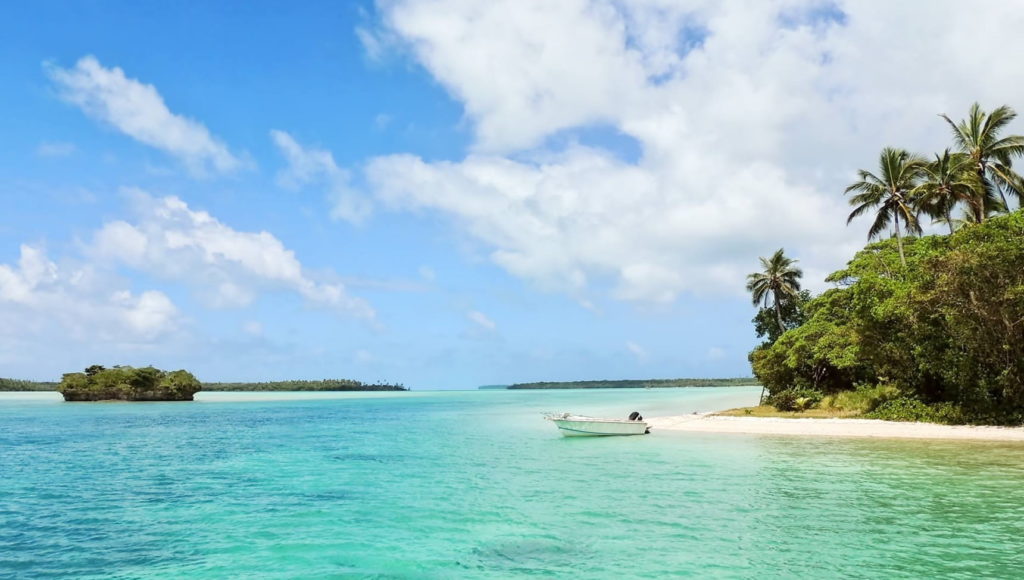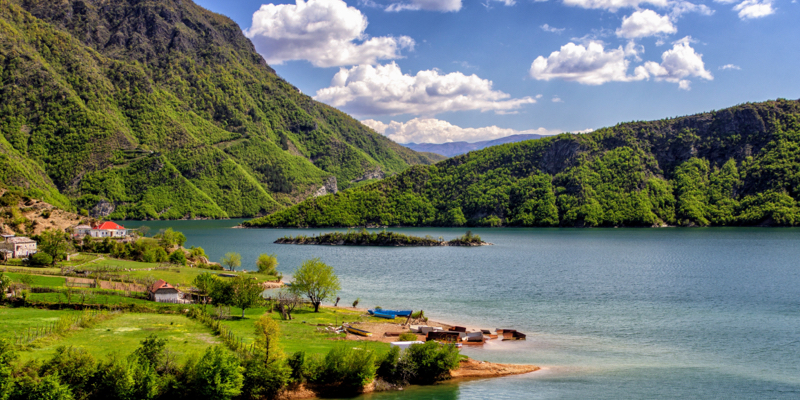- Sector : Sustainable Agriculture
- Location : Golden Grove, St. Thomas, Jamaica

Overview
SCF is considering an investment in an agroforestry project in Jamaica. The project is an agriculture production project developing 260 acres of coconut trees and intercropped ground produce, post-harvest processing infrastructure, cultivation operations and smallholder farmer extension services. The project is the foundation of a scaled agroforestry infrastructure strategy across geographies and crops, partnering with the Jamaican government to reclaim unused former sugarcane land for trees and food. The project’s benefits are food security, ecological restoration, labor creation, community resilience, and climate change mitigation. Production upon the orchard’s maturity will annually yield 6.4 million coconuts and 1,300 metric tonnes of fresh produce – ginger, turmeric, papaya, yucca and ackee. The project plans to expand its cultivation acreage within Jamaica and through partnerships in Haiti, Brazil, Costa Rica, Panama, and the Bahamas.
The project aligns Jamaica’s imperative for growth, change and efficiency in the agriculture sector with a project to address food security and elevate the agricultural sector. The project is an agriculture infrastructure investment with equal purposes of production, engagement (through offtake) of smallholder farmers, ecological restoration, improved productivity, and farmer incomes.
The project will act on the CARICOM ‘25% by 2025’ imperative to locally produce 25% of the region’s food by 2025. Infrastructure, regenerative cultivation methodologies, and smallholder engagement will reduce food import dependency in Jamaica and the wider CARICOM region, while sequestering carbon in plentiful, unused, arable soil.
The Challenge
The Caribbean must modernize food production models to withstand current and future climate change impacts. An unhealthy reliance on low-quality food imports may create social and economic vulnerability, while the COVID-19 pandemic, geopolitical events, and energy costs have further disrupted food supply chains. This climate of vulnerability has led to a timely shift by governments and business leaders to the development of agri-businesses as a means of providing food security and reducing import dependency.
CARICOM launched the COVID-19 Agri-food Plan, referencing the ‘25% by 2025’ imperative to replace 25% of imports with local/regional production by 2025. This is a high value commitment to regional purchasing within the 14 CARICOM Member States.
The Jamaican Community and Market Opportunity
Jamaica is a net importer of coconut products, with 4,700 coconut producers who are largely small farmers with less than 10 hectares under cultivation. Current production is insufficient to supply local demand, or to capitalize on opportunities that exist in the global and regional markets. Jamaica’s Coconut Board has resolved to attract 1,500 new coconut farmers to develop 150,000 acres of new coconut cultivation over the next eight years. Regenerative Agroforestry Partners plans to build expansive infrastructure on which the Jamaican coconut industry can thrive.
SCF’s Involvement
1. Our Investment
The Subnational Climate Fund plans to invest in the project, a local operating company that will develop a model farm to sustainably manage cultivation acreage, and construct and operate input production (compost, biological fertilizers, biochar), nursery, and post-harvest processing infrastructure. Additionally developed capacities include outreach support services, digital registration, data capture and aggregation of local farmers to train at the production site and to then contract and sell outputs to the post-harvest facility. Smallholder farmers will have access to subsidized inputs.
2. Technical Assistance
The project is going to receive Technical Assistance from the SCF for a pre-feasibility study, Feasibility Studies, and an Environmental and Social Impact Assessment (ESIA)
Pre-feasibility assessment:
- Analysis of existing on-site biodiversity, ethnobotanical resources, biological corridor.
Feasibility studies:
- Detailed soil sampling and analysis to determine suitability of selected crops, irrigation needs and soil management practices.
- LIDAR topographic survey of the project site to inform/establish facility boundaries, crop layout, optimization, and structural parameters.
- Water analyses
- Planning for community inclusion and capacity building for vocational training of at-risk youth in climate smart agriculture and packing house facility activities.
- Analysis of women and children’s nutritional goals in the communities around the project site.
- Feasibility for nature-based solutions for on-site carbon neutral and carbon negative input production methodologies
- Feasibility of applying Nature-based solutions considering the landscape and ecosystem of the entire project space.
ESIA:
- Environmental and Social Impact Assessment
- Outreach to the rural farming community to understand education levels and capacity building needs to achieve climate smart agriculture transitions
- Outreach to the rural farming community to determine the SDG impact goals for the local population
Our Target Impact
-

SDG 8 Decent Work and Economic Growth
Through the project, we hope to create local employment in the construction of model farm infrastructure (30 FTE), cultivation operations (28 FTE), and the activation and expansion of a proximate smallholder farmer network (TBD).
Additionally, extension and training services, and post-harvest aggregation and processing facilities will increase yields and improve incomes of smallholder farmers.
-

SDG 12 Responsible Consumption and Production
Smallholder farmers will have access to outreach support services, digital registration, and data capture. They will also be trained in optimal cultivation methodologies. The project to contract with, and purchase outputs from smallholder farmers. Farmers will have access to subsidized inputs – seedlings, seeds, biological fertilizers, biochar.
We also expect increased water use efficiency through soil restoration practices.
-

SDG 13 Climate Action
The project is expected to have relevant CO₂ reduction through Afforestation/Reforestation (A/R). Quantification will be measured by Gold Standard.
-

SDG 15 Life on Land
The project is expected to activate biodiversity and productivity of abundant, fallow public and private lands.
-

SDG 3 Good Health and Well-being
The project should improve food security of the local population and will particularly monitor the nutritional needs of women and children in the community.


